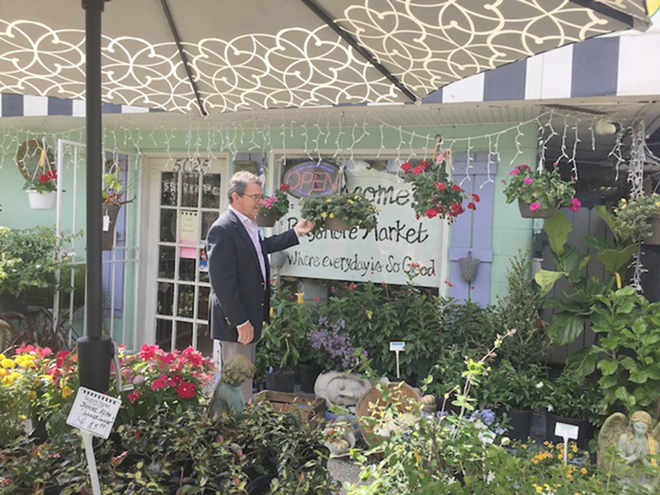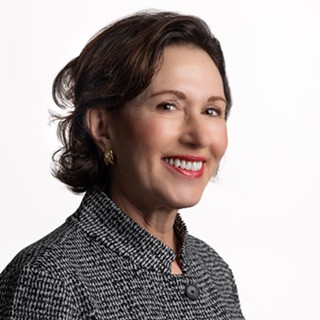Once upon a time, every neighborhood had a corner store — a small mom-and-pop place folks could walk or ride their bikes to, where they could pick up a bottle of milk or a loaf of bread to take home.
But as subdivisions emerged after WWII and the car became king, the convenience store took over as the quick-pick spot, meaning more pavement, larger signs and gas pumps. A few decades on, the drug chains moved into the grocery biz, and by 2002, the trend was bigger and bigger boxes — superstores like Walmart and Target that made the local Publix seem modest in scale.
But recently, the enthusiasm for fresh, local food has sparked new interest in corner stores. Neighborhoods lucky enough to have retained such businesses have embraced them, while DIY entrepreneurs have seen the benefit of developing new ones.
Duckweed Market, in downtown Tampa, is one example. The store moved from its original 600-square-foot space on Polk to Tampa Street in 2010, more than doubled its square footage in 2013, and is set to open a second store in the Channel District.
“We were living downtown and recognized the need for a store,” explains Michelle Deatherage, the owner. ”We try to have a bit of everything for everyone.” The market feels like an upscale bodega with its sophisticated takeout, fancy pastas and chocolates. Its wares range from ping pong balls to fine wine to basic household goods, available in the upstairs mezzanine.
Michelle says that she gets many ideas for merchandise from her customers, most of whom she knows by name.
“People have started dating here!” she notes with pride.
On the Pinellas side, the Old Southeast Market is similarly fresh and hip, with an emphasis on locally made products. These two new haunts for urban foodies share a lot with traditional corner stores: they’re family-owned, demand a huge time commitment from their owners, they have very loyal customers and a strong sense of community.
Alex Ratensky, retired dean of the USF School of Architecture, commented that his neighborhood bodega in Brooklyn was the hub of community there. “You’d have the wealthy and the working-class folks all together in line, chatting about what was going on. It was truly the gathering point.”
While dozens of corner stores (like Hutto’s Corner, a Central Tampa mainstay) have succumbed to competition from larger rivals over the years, those who’ve survived did so by maintaining a strong ethnic and cultural bond with their customers.
Mark Cacciatore’s grandfather opened his store in 1896, and Cacciatore and Sons has enjoyed a loyal following ever since. Originally located on 7th Avenue in Ybor City, the family-run business moved several times, settling on Armenia Avenue in West Tampa in 1966. Today this haven for Italian, Spanish and Cuban food sells all the necessary spices, specialized cuts of meat and prepared meals, including homemade deviled crabs. Mark’s cousin, Speedy Brown, owned The Silver Ring in Ybor City, famed for their Cuban sandwiches. After that cafe’s demise, the grocery picked up the torch and now serves fourth- and fifth-generation customers.
“People crave the food they grew up with, and here they can get the real food that they know,” explains Cacciatore. ”They may have moved away from the old neighborhood, but they return to shop here.”
AP Produce, with its handmade sign and open, earnest staff, has stood on Armenia Avenue since 1984. Jesse Pardo, whose dad started the business, told me that his tomatoes are the store’s calling card, though all the fruits and vegetables look fetching.
Pardo estimates that half his clients walk to AP from their nearby homes in the Forest Hills neighborhood and that many are the grandchildren of AP’s original customers. He says that word of mouth has promoted the store and that his family shops the farmer’s market on Hillsborough Avenue at 4 a.m. daily to pick the best produce.
Up the street from AP is another neighborhood mainstay, the Forest Hills Market, flooded every afternoon by children from adjacent schools and neighbors picking up items for snacks or dinner. Edward McNamara, the general manager, offers classic local treats such as stuffed potatoes and Cuban sandwiches made on La Segunda bread. For 35 years this small store has been a gathering place, serving everyone from local sports teams to police and firefighters.
I found a similar sense of community at the Jackson Market in East Tampa, where I chatted with the matriarch and her sons, and at the Bayshore Market south of Gandy, where I admired the plants and local specialty food items that attract shoppers from throughout the region.
Israel Diaz, a personal chef who frequents the Bayshore Market, explained its appeal.
“I always seek out the small store which has carefully selected, locally sourced produce, a good butcher, and decent bread. This place is part of the spirit and charm of being in a community.”

















